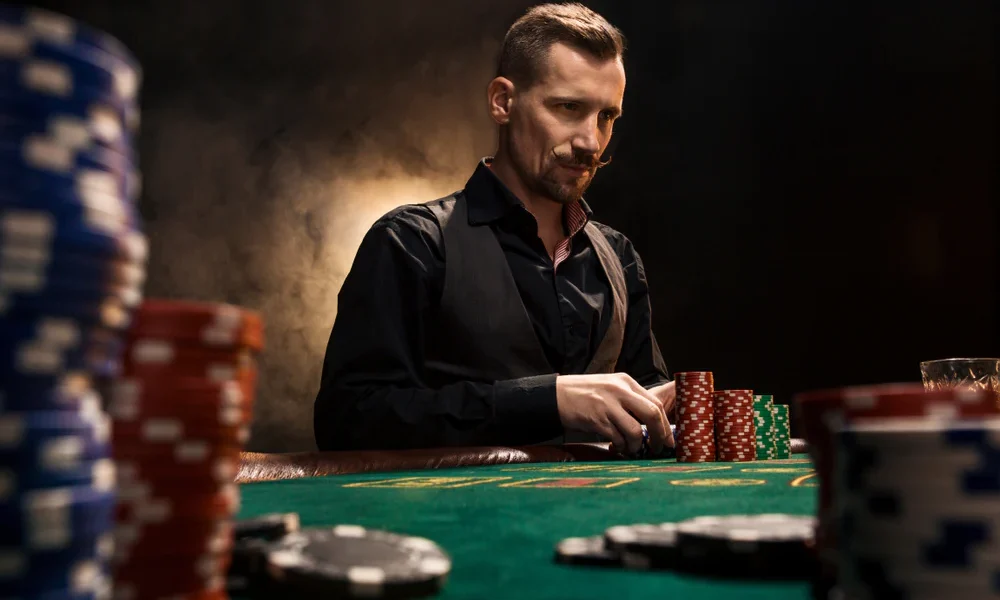It’s a science: poker is about incredible focus and calculation, let alone psychological cunning – the game is about cheating your opponents while hiding how powerful your hands really are. Becoming skilled in reading tells can make a difference at the table.
Poker’s intoxicating mix of strategy and spectacle is still infectious. Let’s explore more about its science as you read more of the game’s tricks and tips.
Roulette: an art of the game.
Poker is a skill-based game, as well as a luck-based game; the better players can often negate this by focusing on perfecting the art of the game, which combines psychological knowledge of the other players and card reading to uncover combinations possible against them.
Yet, even the best poker players are susceptible to short term fluctuations that erode their self-belief and make them question their abilities. And on average though, for thousands of hands, everyone will probably get around the same number of lucky numbers.
The pro poker players learn the nuances of all poker variations including Omaha and Seven-Card Stud. Each offers unique challenges and encounters that enhance player competitiveness and grow players’ understanding of strategy, bluffing and mental games played on virtual felt tables.
Competitor game.
Poker is a very fun card game, and it requires strategy and psychology, bankroll control and keeping abreast of current industry patterns. It’s important to learn an opponent’s habits and patterns when bet-taking, so that you can see their hand to assess it and make the best decisions.
While luck is a big part of the poker game, you can still make money for most people over the long haul with skill. Well-trained players simply outplay inexperienced ones – evidenced by professional poker players playing more hands than they lose in millions of sessions.
To play well at poker you need to learn more complex strategies like reading hands and position. Also to not lose your cool under pressure and maintain your control of your feelings. And you can do this by training yourself, keeping your bankroll clean and from making mistakes.
Game of psychology,
Poker psychology has become an integral part of the game that shapes decision-making. This is reading how and when opponents feel and act; studying how they feel and read body language when you read or observe the other person. This will help you figure out their weak spots and attack them, for example, a fucking player who keeps looking at you might be indicating they’ve got a weak hand that you can take advantage of.
Bluffing is a second essential aspect of poker psychology, because a good bluff quickly disorients players and makes it easier for you to close out a hand. Many great players such as Doyle Brunson and Phil Ivey perfected their bluffing skills using psychological tricks like mirror neurons to shape what others perceive and do.
Poker players must also be able to control their own feelings and hold themselves in check when they are feeling pressured (very important during very high stakes). It is up to them to be quick, to analyse their circumstances and make decisions without getting emotionally invested or based on the last minute, and this takes skills, commitment and control.
Game of bluffing.
Bluffing is a vital aspect of winning poker and it needs to be timed properly. To see if your opponent is bluffing, notice their timing – sudden betting can show weakness while timeouts might show strength. Also listen for physical signals but don’t rely too heavily on them as these can easily be overridden and misused.
Learning to bluff correctly is essential to making more money at the poker table. By using a solid bluffing strategy you’ll get the most out of your expected value and have a psychological edge on the other players.
A successful bluff can help build your poker card count and gain respect from other players. But don’t forget – a wrong bluff can kill your stack! Whenever possible, use a balanced bluffing strategy using low and high hands, and any random ones that are not board relevant.










